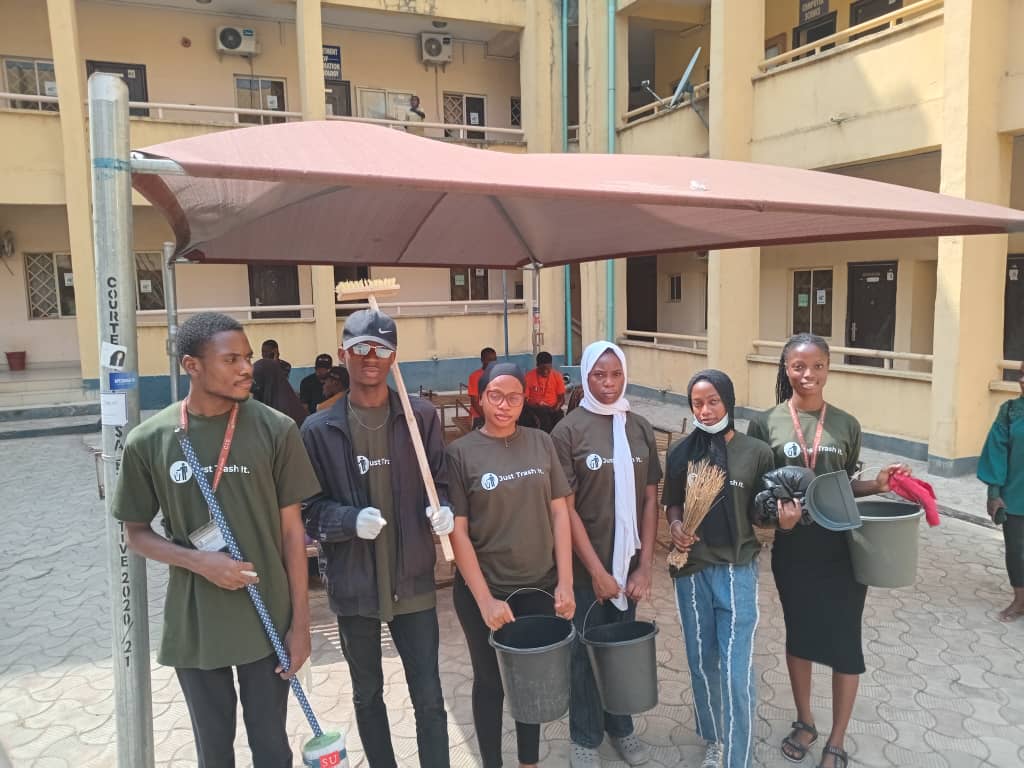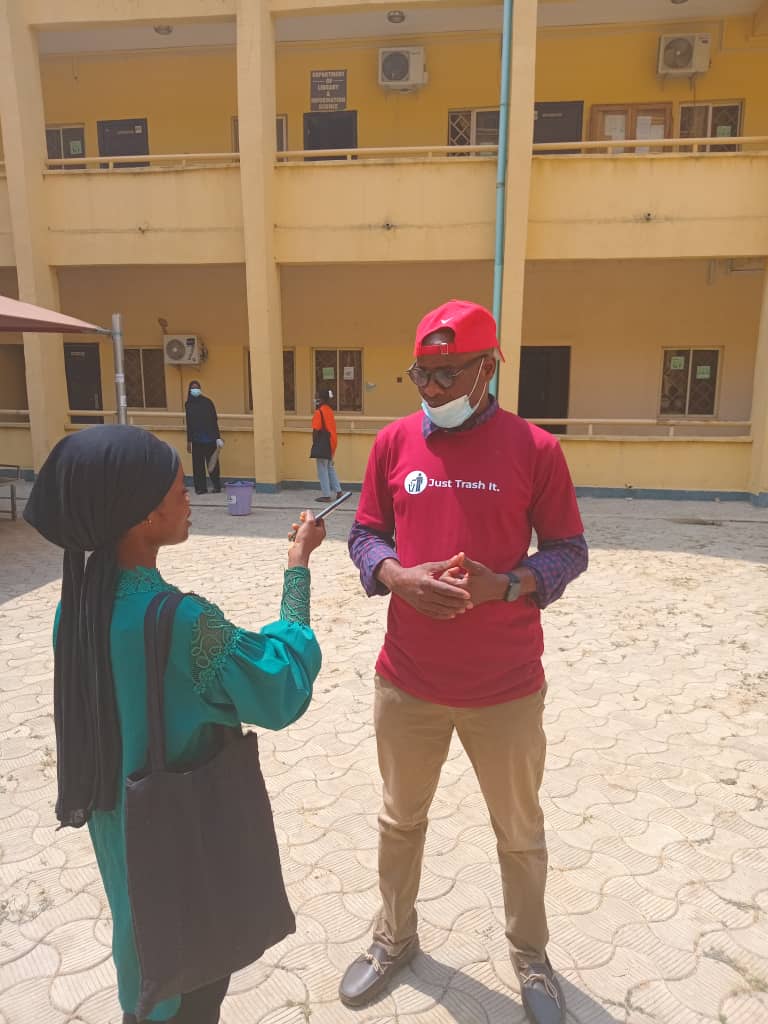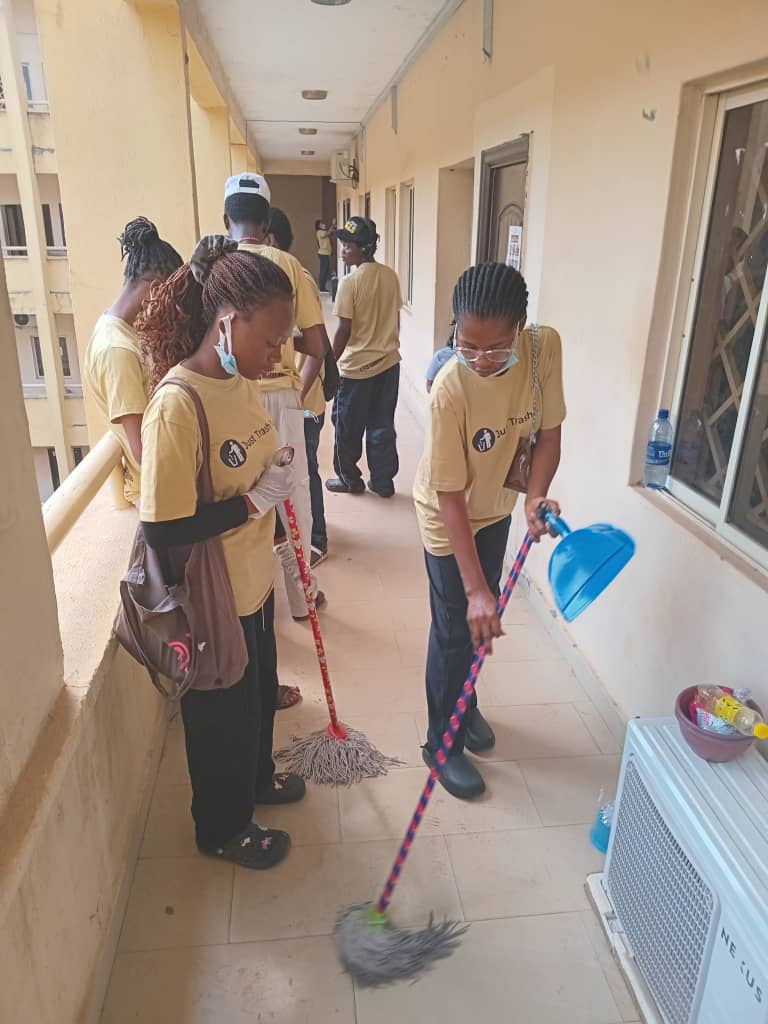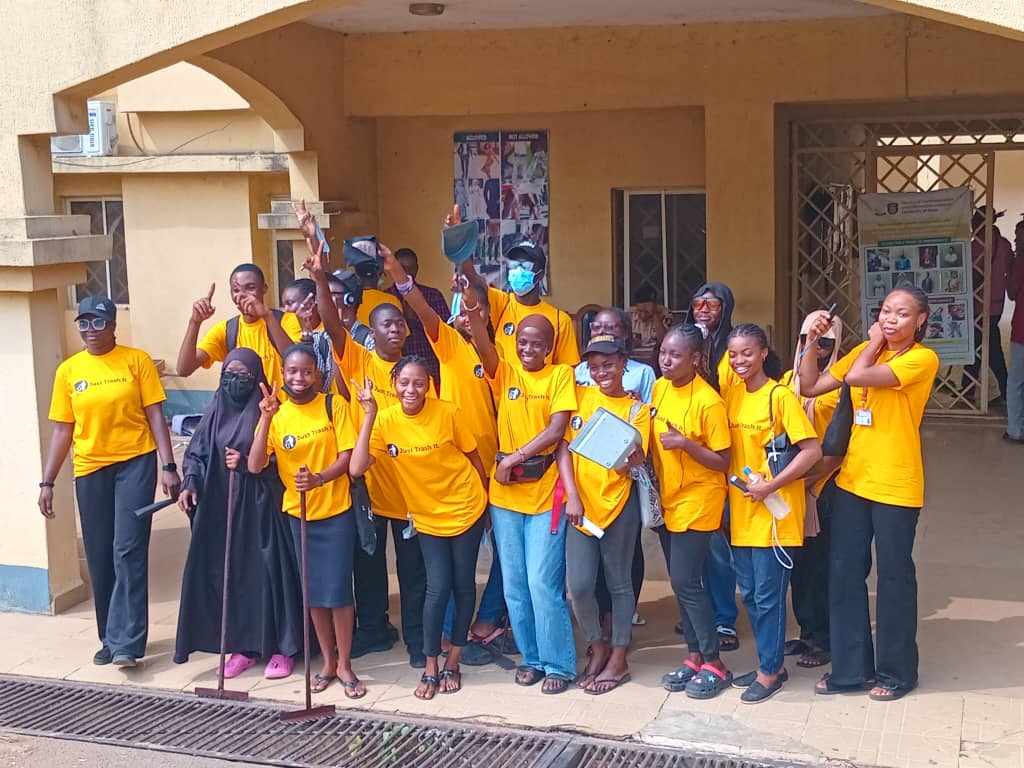By Maryam Afolabi
In conducting the interviews for this article, I was assisted by two dedicated students, Oyewo Babatunde and Suleiman Safiyah, whose insights and contributions helped shape the perspectives shared here.
In a move aligning with global environmental sanitation trends and climate change awareness, the Faculty of Communication and Information Sciences at the University of Ilorin has embraced an annual faculty cleaning initiative. Spearheaded by Professor Lambe Kayode Mustafa, this initiative is shaping students’ attitudes toward environmental responsibility while fostering a culture of cleanliness.

A Vision for a Cleaner Campus
Professor Mustafa, a brilliant academic renowned for his deep commitment to advancing the study of media’s role in shaping societies, shared that his inspiration came from witnessing clean academic environments abroad. Determined to replicate this in Nigeria, he launched the initiative in 2015. Despite initial constraints, he remained committed to making a difference within his immediate environment.
Over the years, the initiative has evolved, integrating students from international communication, public relations, and community relations programs. The goal is to instill a sense of responsibility, teaching students the value of giving back to their community and developing empathy for campus cleaning staff.
According to Professor Mustafa, this participation fosters environmental stewardship, reinforcing the idea that cleanliness is a shared responsibility.

Challenges and Changing Mindsets
One of the major hurdles encountered has been attitudinal resistance toward waste disposal. Despite the provision of trash bins, littering remains a persistent issue. Professor Mustafa emphasized the need for a shift in mindset, advocating for integrating environmental education into development communication courses to reinforce positive behavioral change among students.

Recognizing that changing attitudes requires a multifaceted approach, he aims to broaden the initiative to include all faculty members and students. Through this, he hopes to build a long-lasting culture of cleanliness and environmental consciousness within the university.
A University-Wide Expansion
Beyond faculty-level efforts, Professor Mustafa envisions a university-wide implementation of the initiative. Drawing inspiration from previous campaigns like ‘Don’t Drop,’ which encouraged proper waste disposal, he believes that expanding the initiative will instill a stronger commitment to environmental responsibility among students and staff.
Furthermore, the professor underscored the role of media in shaping public attitudes toward sustainability. He advocated for the integration of environmental awareness into all levels of education, emphasizing that early exposure to these principles can lead to long-term behavioral change.
The Role of Students in Environmental Advocacy
Looking ahead, Professor Mustafa plans to transform the initiative into a comprehensive campaign that engages more stakeholders. By doing so, he hopes to create a new generation of students who see environmental advocacy as a core responsibility.
He urged students to embrace the initiative as more than just a cleaning exercise but as a wake-up call for climate action. “This is not just about sanitation; it is about developing a mindset that values sustainability and taking practical steps towards a cleaner, healthier environment,” he noted.
While Professor Mustafa provided insights into the broader vision and challenges of the project, several students shared their personal experiences, motivations, and suggestions for improvement.
Samuel’s Perspective: Advocacy for Expansion
Samuel, a 300-level Mass Communication student, passionately supports the initiative, considering it an innovative approach to environmental care. He emphasized the necessity of cleanliness in fostering a positive academic atmosphere. However, he noted that manpower remains a significant challenge, as the initiative currently depends on a limited number of volunteers.
Samuel firmly believes that the initiative should be expanded beyond the current group of 300-level Mass Communication students. He advocates for making participation mandatory for all students within the faculty and even across other departments. In his view, collective responsibility would make the effort less burdensome and more effective.
To address the perception of the initiative as a tedious task, Samuel suggested incorporating interactive and social elements into the cleaning process. He encouraged students to see the exercise as an opportunity to bond while contributing to a cleaner environment. Looking ahead, Samuel remains committed to maintaining environmental responsibility and hopes the initiative will inspire broader participation.
Azeez Azeezat’s Perspective: Aligning with SDG Goals
Azeez Azeezat, a student majoring in print sequence, highlighted the importance of the initiative in relation to the Sustainable Development Goals (SDGs). She believes that environmental sanitation is a crucial aspect of community development and should not be limited to a select group of students.
One of the main challenges she identified is the lack of participation from other departments. She also pointed out that the cleaning equipment provided is inadequate, making the work more difficult. Azeezat proposed extending the duration of the exercise beyond a single day and upgrading the equipment to enhance efficiency.
She also emphasized the importance of changing students’ mindsets toward environmental responsibility. In her opinion, proper education and awareness campaigns could encourage more students to take an active role in the initiative. As a student interested in journalism, she intends to report the event from a human interest angle, focusing on its impact since its inception in 2015.
Ayoola Isreal and Sanusi Rokibat: Addressing Practical Challenges
Ayoola Isreal and Sanusi Rokibat shared their experiences participating in the initiative. Ayoola acknowledged that while some students join for academic marks, the initiative plays a key role in raising awareness about environmental responsibility. He highlighted that the cleaning work is physically demanding and sometimes strenuous.
Sanusi pointed out a critical issue: insufficient waste bins in certain areas of the faculty, leading to littering. Both students agreed that broader student participation is necessary to make the initiative more effective. They suggested involving students from different departments such as CIM, ICS, and telecommunications to foster a collective effort.
Sanusi proposed that students should be educated on proper waste disposal practices through direct involvement in cleaning activities. Ayoola also recommended a collaborative faculty-wide system for cleaning to ensure sustainability.
Olukorede Oluwapelumi: Call for Better Resources and Recognition
Olukorede Oluwapelumi, another 300-level Mass Communication student, shared her perspective on the importance of maintaining cleanliness for both environmental and health reasons. She noted the lack of sophisticated cleaning equipment such as leaf blowers and the financial burden on students who use personal resources for the exercise.
Olukorede suggested that the initiative should be extended to all departments, with support from the school administration in terms of equipment and financial resources. She also recommended implementing a recognition or reimbursement program to motivate students and encourage participation.
To shift negative perceptions, Olukorede proposed showcasing the positive impact of the cleaning initiative through documentation and media campaigns. She emphasized that raising awareness about the benefits of environmental cleanliness would help students appreciate the initiative more.
Conclusion: A Collective Path Forward
The faculty cleaning initiative at the University of Ilorin has sparked discussions on environmental consciousness and student responsibility. While Professor Mustafa envisions a university-wide adoption of the initiative, students like Samuel, Azeezat, Ayoola, Sanusi, and Olukorede have highlighted key areas for improvement, including broader participation, better equipment, and recognition for efforts.
With continuous engagement, institutional support, and strategic awareness campaigns, this initiative has the potential to become a model for environmental advocacy in Nigerian universities. The collective effort of students and faculty members could transform it into a long-term movement, fostering a culture of cleanliness and responsibility across the academic community.
Maryam Afolabi writes from Ilorin ,
You can contact her on 08130047863 maryamoyin@gmail.com

